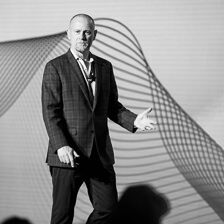We love our technologies. And why shouldn’t we?
Technology has transformed daily life and made much of what we do today vastly more efficient than we could possibly have imagined. Our mobile technologies have become extensions of our brains, always at hand to assist us in accessing information and providing feedback on the world around us. As a result, technology has changed the way we behave. Technology has introduced new behaviors. We now engage openly in activities that just a few short years ago would have been considered rude or silly. They have become commonplace and accepted. Fill in your favorite online or mobile phone behavior here __________________.
This is a universal issue among those of us who have embraced technology’s encroachment on the turf of our daily lives. It is not limited to the “Millennials” we fondly to refer to as “digital natives.” These new behaviors are accepted across all demographics. But just because a new behavior is accepted, it doesn’t mean it’s better, or more effective.
Technology is not a differentiator. It seeks sameness. It seeks ease. It seeks efficiency.
Efficiency is the enemy of trust.
The distance between the speaker and the hearer changes the importance of the different elements of communication. “When nonverbal information is weak or absent, the verbal information becomes more dominant,” Joshua Meyrowitz explains in No Sense Of Place. “The attention to a speaker’s verbal message, therefore, varies with interpersonal distance. The closer the distance between people, the less attention paid to the verbal message.”
In writing, actual words become more important, and the work required to differentiate using that medium becomes greater. Writing is hard. Good writing, writing that can truly distinguish one person from another, is even harder. As our online interaction continues to move toward soundbites of information via status updates on Facebook, Twitter, and other online venues, our writing moves from long form content that can even attempt to elicit emotions, to contextually neutral, disconnected pieces of information.
In this way, the Internet has provided both a means of closing and widening gaps. It hints at “engagement” but falls short for those who begin to trust that the “likes” and “retweets” they give in public spaces are equivalent to the feedback they give a real human being in private spaces. Those who take the path of least resistance, participating ONLY in the simplest “engagement” acts, will not be rewarded in the long run. Those actions don’t differentiate.
When “information” becomes the dominant form of communication, differentiation is made more difficult. The Internet leads us to believe we have come closer together, and certainly, in many ways, we have. But when our ability to really know someone and to experience the fullness of communication is diminished, the relative distance between us has increased. While time and distance no longer matter in our networked culture, really connecting with another human being still does.
The fastest way to trust is not through technology or social media. Face-to-face is the fastest way to trust and the best way to form deep and meaningful relationships. Relationship building is never efficient. It is often messy.
I originally shared that thought months ago in an email to Jim Walberg. He responded, “Yep, and my experience is that “messy” is worth it!” It most certainly is.
Today I’m having breakfast with Jim. Making it happen was a little messy. I don’t care. I look forward to the times we can spend together, to the opportunities to feel each other’s energy truly. And when I look at the people in my life who I consider my closest friends, those relationships are cemented by the same face-to-face intimate experiences that have always differentiated one friend from another. I don’t ever want to forget that.

I have been mentoring several younger agents here in the office, all of them are very bright and technically gifted. I remind them on a regular basis that the objective of all of our blogs, social media platforms, and even post cards, are just to get us in front of potential clients.
Carry on, I believe you are on to something here, and hopefully through your writing a few others will get it also.
I think it’s easy to be seduced into thinking that our “likes” and “follows” and such are enough to build trust. Over time, the light touches do build up. I have tremendous relationships that have come over time via light touches on the Internet, but that has taken longer than a few face-to-face meetings would have taken.
Great relationships are messy…yup, but so so worth it.
Jeff, you already know I agree with everything you wrote.
But wait, there’s more. Being necessarily messy requires that we also become more discerning about where, how and with whom we choose to be messy. Building relationships that matter is an investment of our most precious resource – time. When it comes to creating relationships that matter, I often (so I’m told, mostly by you) sound like an elitist snob. I’m not trying to be a snob; I’m trying to make the most of my time by focusing on relationships that are important to me. Not just important in an economic sense, but in terms of my own Values and what is important to me in having a balanced, fulfilling life. And oftentimes, when I shy away from creating a relationship with someone, it’s also because I don’t believe that I can add any value to their life, so I don’t want to be a drag on them and waste their precious time.
You’ve written an excellent piece that just barely opens the door to an immensely important and deep subject that, I believe, is a core issue in defining the kind of society we want to have for ourselves and pass on to our children.